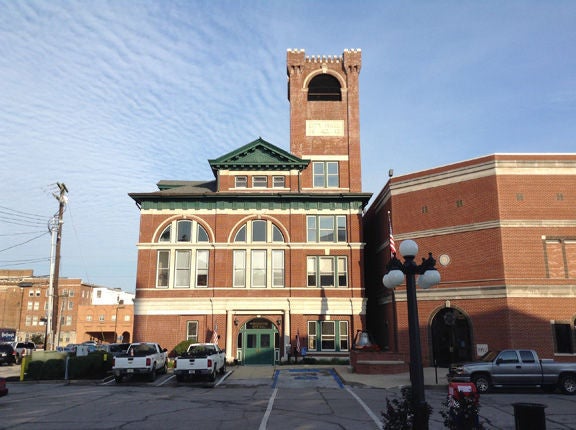Enoch: John B. Huston
Published 10:00 am Saturday, October 21, 2023
|
Getting your Trinity Audio player ready...
|
By Harry Enoch
Contributing Writer
John Boyd Huston was one of the most brilliant attorneys to ever practice law in Winchester. Huston was born in Nelson County on October 1, 1813. His parents, devout Presbyterians, hoped to educate their only son for the ministry. After graduating from Centre College, he dashed their hopes by enrolling in law school at Transylvania University.
Huston came to Clark County after receiving his law degree in 1835. While residing in Winchester, he married Mary J. Allan, a daughter of Chilton Allan. He went into politics and was first elected to the Kentucky legislature in 1835. After serving a single term, Huston practiced law with his prominent father-in-law and proved himself an able jury attorney.
In 1857 he went into practice with William S. Downey. James Simpson sold them a house and lot on Short Street (now Cleveland). The 1857 deed states that it was the house “in which said Huston and Downey now have a law office.” The office was where the McEldowney Building stands today.
According to his biographer, “Politics at best offered to Mr. Huston only a playground in which he overflowed with humor and delighted eager audiences by his rare gifts of speech. His real battlefield was the court room, where he was seldom rivaled as an advocate. His addresses to popular audiences were always aglow with fervor, but his arguments before Courts and juries were remarkable for higher qualities. He could bring laughter to the most stolid countenance and start a well-spring of tears in the very heart of the coldness and indifference. The older lawyers of Lexington well remember his brilliant display of erudition, his severe logic, his caustic phraseology, and his appeals to the tender part of one’s nature.”
Huston returned to the legislature in 1855 as a representative of the Know Nothing Party, a remnant of the former Whigs. He represented Kentucky at the Border State Convention in 1861. He is credited as the major influence on Kentucky remaining in the Union. Although referred to at this time as “General Huston,” there is no record of his ever serving in the army. He could have received his rank by appointment in the Kentucky militia.
When Lincoln ran for re-election in 1864, Huston came out openly in support of General McClellan. He opposed the military jurisdiction imposed on Kentucky as well as the enlistment of slaves in the federal army. For this Gen. Steven G. Burbridge, Union commander of the District of Kentucky, had him arrested. Gov. Thomas Bramlette complained directly to the President. He received orders for Huston’s release along with the following note from Lincoln:
“I can scarcely believe that General John B. Huston has been arrested for no other offense than opposition to my re-election; for if that had been deemed sufficient cause of arrest I should have heard of more than one arrest in Kentucky on election day.”
Near the end of the war, Huston and Downey sold the law office to Charles Eginton and moved their practice to Lexington. There Huston continued his illustrious law career. While establishing a lucrative practice, he served as a law professor at Transylvania for twelve years and was acknowledged by his peers as one of the giants of their profession. He was said to be “in stature over six feet, full-chested, graceful; he had a bright eye, a finely shaped head, a powerful and pleasant voice and an expressive face.”
Kentuckian John C. Breckinridge, when asked who in his opinion was the most learned and distinguished jurist in America, replied without hesitation, “Gen. John B. Huston.”
At the close of his life, Huston returned to Winchester, where he died at the Rees House in 1881. He was interred in an unmarked grave at the Winchester Cemetery.
In 1904 a monument was “erected by his associates of the Lexington and Winchester Bars and other friends as a testimonial of their honor and affection.” Huston has one of only two “white bronze” (cast zinc) monuments in the cemetery. The commemorative service at the Opera House following the dedication was attended by many prominent figures from across central Kentucky. Judge W. M. Beckner presided and W. C. P. Breckinridge, widely known as “The Silver-tongued Orator,” gave the dedication address.
Huston’s portrait hangs today in the second-floor courtroom at the Courthouse.





